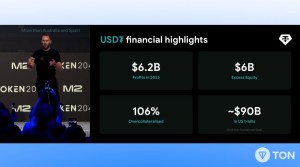A publication by the accounting firm PwC has put India on the track of a 7.6 percent growth in 2019, and this has set a path for the country to surpass both the U.K. as well as France in terms of economy.
But any economist would know that Gross Domestic Product (GDP) – is not the right tool to assess data.
PwC spoke about India’s enormous population and the “favorable” demographics which have proven to be the significant factors that have led the economy to go above the U.K’s economy this year. The firm stated that a World Bank report was considered to validate these claims, which said that India’s $2.59 trillion economy is just about $25 billion less than the U.K.’s $2.62 trillion figure.
But it is important to understand that U.K. is relatively smaller in size in comparison to India. A lesser population translates to producing lesser goods.
But India, which was formerly under the British territory, has taken too many years to come close to the U.K’s staggering growth.
GDP rates only give the measure of a pie but don’t provide details regarding the division of pie.
Anand Sharma, the Indian Commerce Minister, once blasted the supply chain and logistics market which powered the subcontinent. He said that about 30 percent of the agricultural output has failed to cross the point of origin, and in the remaining 70 percent which makes to the wholesaler, more than 50 percent is “lost” due to poor storage and inefficient transport networks. But PwC’s report hasn’t taken notes of these aspects.
Issues stated above are being steadily mitigated as foreign players, and domestic startups have started entering the market with their versions of how an efficient supply chain should be. The country’s alarming inflation rate can be directly linked to the lack of organizational skills in the supply chains, and it only reports a 15-20 percent increase that attributes to the fallacy alone.
But most of the profits which companies make are taken away by the investors and are remitted to their home offices in other places. Sunanda Sen of the Economics Department at JNU called this as “short-term” capital flow; which consisted of foreign players putting in huge capital in Indian markets, that would lead to an overestimated income rate, but quickly going out of their positions after the profits are created for them. An adverse effect of such an abrupt exit is that the Reserve Bank of India may not completely hold their supposed $375 billion in foreign reserves.
Not like many trust the government’s growth figures. Businesspeople, executives, and people with higher disposable incomes have been splurging on luxury goods more than ever, but foreign investment in the country has gone down to less than 30 percent in 2017-18. In comparison to this, China has experienced a decent 45 percent year-on-year investment rate since 2008.
PwC’s went on to glorify that, what analysts had failed to account for is the sheer ground reality of India. Employees have been crunching data with their sophisticated MacBooks in air-conditioned offices and are being paid hefty paychecks and these are not the people who will understand or even bother about the crumbling side of India’s economy.
GDP figures can prove to be essential to measure tax revenues and estimate productivity, but they can’t be considered to account for the depreciation of capital and human resources of the entire country.
The wealthiest 1 percent of the people grew 39 percent from 2018 in comparison to 2017, but this has only been added to the economy with the purchases of air tickets to exotic destinations and extravagant bashes being throw during occasions. GDP’s perspective suggests that bigger is better. But everyone is aware of the consequences the financial sector saw in 2008 when it got bigger and bigger.
On the other hand, PwC should go back to investing time in the security of compliance procedures for their business. The firm has been prohibited from auditing listed companies in India until 2020 after criminal charges were alleged against the entity since they had a below-par fraud team and audit service.





